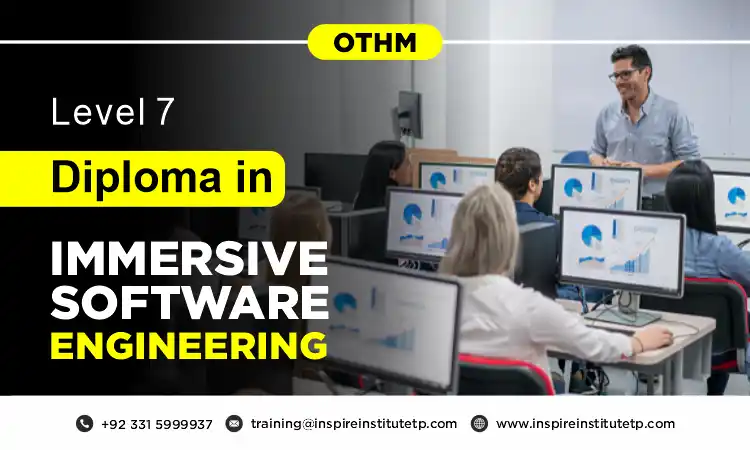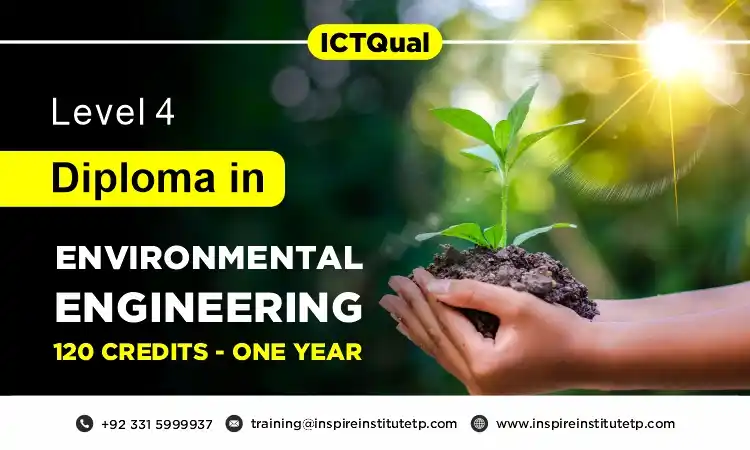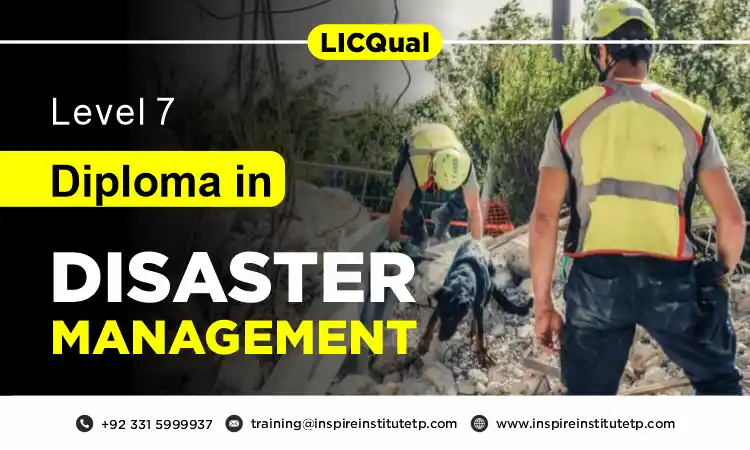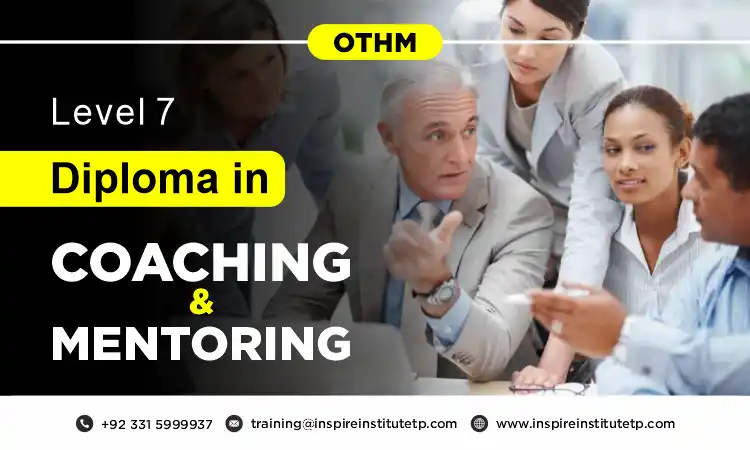OTHM Level 7 Diploma in Immersive Software Engineering
The OTHM Level 7 Diploma in Immersive Software Engineering is a comprehensive program designed for professionals seeking to advance their expertise in cutting-edge software development technologies. This qualification focuses on the principles and practices of immersive software engineering, including virtual and augmented reality applications, game development, and interactive media. Through a blend of theoretical knowledge and practical skills, learners will explore innovative methodologies, tools, and frameworks essential for creating engaging immersive experiences. The diploma prepares graduates for leadership roles in the tech industry, equipping them with the competencies needed to drive projects and teams in an increasingly digital landscape.
Why Choose this Qualification
Choosing the OTHM Level 7 Diploma in Immersive Software Engineering offers several compelling benefits for aspiring professionals in the tech industry:
- Industry Relevance: As immersive technologies like virtual reality (VR) and augmented reality (AR) gain traction across various sectors, this qualification equips you with the skills to meet the growing demand for innovative software solutions.
- Comprehensive Curriculum: The program covers a wide range of topics, including game development, interactive media, and user experience design, ensuring you develop a well-rounded skill set that is applicable in multiple contexts.
- Career Advancement: With a focus on advanced techniques and methodologies, this diploma prepares you for leadership roles, enhancing your career prospects in a competitive job market.
- Hands-On Experience: The emphasis on practical learning enables you to work on real-world projects, giving you valuable experience and a portfolio that showcases your capabilities to potential employers.
- Networking Opportunities: Engaging with industry professionals and peers during the course can help you build a network that may lead to collaboration, mentorship, and job opportunities.
- Flexible Learning: Designed for working professionals, the program often offers flexible study options, allowing you to balance your education with personal and professional commitments.
Overall, the OTHM Level 7 Diploma in Immersive Software Engineering is an excellent choice for those looking to elevate their career in a dynamic and innovative field.
Course Overview
Ofqual Regulated Qualification
Course Level: Level 7
Average Completion Time:
6-18 Months
Study Units: 6 Units
Evidence & Assignment Based
Who Should Take This Course
The OTHM Level 7 Diploma in Immersive Software Engineering is ideal for a diverse range of individuals, including:
- Software Developers: Professionals with a background in software engineering looking to specialize in immersive technologies such as VR and AR.
- Game Developers: Those currently working in the gaming industry who want to enhance their skills in creating interactive and immersive experiences.
- Digital Media Creators: Artists, designers, and content creators seeking to expand their expertise in immersive storytelling and interactive media.
- IT Professionals: Individuals in IT roles who want to pivot towards emerging technologies and explore the innovative applications of immersive software.
- Project Managers: Professionals managing tech projects who wish to gain a deeper understanding of immersive technologies to lead teams more effectively.
- Recent Graduates: Individuals with degrees in computer science, software engineering, or related fields who want to enhance their employability in a rapidly evolving industry.
- Entrepreneurs and Innovators: Those looking to develop new products or services in the immersive tech space, providing them with the knowledge and skills to succeed.
This course is perfect for anyone passionate about technology and eager to engage with the future of software engineering in immersive environments.
.
Course Benefits
The OTHM Level 7 Diploma in Immersive Software Engineering offers several key benefits:
- Advanced Skill Development: Gain in-depth knowledge of immersive technologies, enhancing your technical skills in areas like VR, AR, and game development.
- Career Progression: Position yourself for higher-level roles in the tech industry, with qualifications that are recognized and respected by employers.
- Practical Experience: Engage in hands-on projects that allow you to apply theoretical concepts in real-world scenarios, building a strong portfolio to showcase your work.
- Innovative Curriculum: Stay current with the latest trends and technologies in immersive software, ensuring you are well-equipped to meet industry demands.
- Networking Opportunities: Connect with industry professionals and fellow learners, expanding your professional network and opening doors to collaboration and job opportunities.
- Flexible Learning Options: Benefit from a program designed for working professionals, with flexible study schedules that allow you to balance your education with personal and professional commitments.
- Interdisciplinary Approach: Explore the intersection of technology, design, and user experience, equipping you with a holistic understanding of immersive software development.
- Increased Employability: Stand out in a competitive job market with a specialized qualification that demonstrates your expertise in a rapidly growing field.
- Leadership Skills: Develop critical thinking and leadership abilities, preparing you to manage projects and teams effectively in the tech landscape.
- Lifelong Learning: Equip yourself with a foundation for continued professional development, empowering you to adapt to future technological advancements.
Overall, this diploma is a valuable investment in your career, providing the tools and knowledge needed to thrive in the dynamic world of immersive software engineering.
Eligibility Criteria
To enroll in the OTHM Level 7 Diploma in Human Resource Management, candidates must meet the following requirements:
An honours degree in a related subject, a UK Level 6 diploma, or an equivalent overseas qualification.
Mature learners (21 years or older) with relevant management experience (confirmation with the delivery center is required before registration).
Learners must be at least 21 years old at the start of the course.
If the candidate is from a non-majority English-speaking country, they must provide evidence of English language proficiency.
The Qualification Process
Here is a step-by-step guide to help you understand the entire journey from pre-registration to certification:
- Self-Assessment:
Begin by evaluating your eligibility for the course. Ensure you meet the entry requirements, such as relevant qualifications or professional experience, as outlined for the program. - Registration:
Complete your registration by submitting the required documents, including a scanned copy of a valid ID, and pay the necessary registration fee. This is your first official step in the qualification process. - Induction:
An assessor will conduct an induction session to verify your eligibility and introduce you to the evidence requirements. During this stage:- If the assessor finds that you meet all the necessary criteria, you will proceed to the next step.
- If you do not meet the entry requirements, your registration will be canceled, and your fee will be refunded.
- Evidence Submission:
Based on the assessment criteria, you will need to submit evidence demonstrating your knowledge and competence. Consult with your assessor if you need clarification on the type and nature of the evidence required. This evidence could include assignments, projects, case studies, or professional experiences related to sustainability management. - Feedback and Revision:
The assessor will review your submitted evidence and provide feedback. Evidence that meets the required criteria will be marked as “criteria met.” If there are any gaps, the assessor will highlight them, and you will need to address those gaps by revising and resubmitting the evidence. - Competence Evidence:
Submit your final evidence demonstrating that you have successfully achieved all the learning outcomes. The assessor will mark your submission as “Criteria met” once everything is up to standard. - Internal Quality Assurance (IQA):
After your evidence is approved by the assessor, the Internal Quality Assurance Verifier (IQA) will review it to ensure that the assessment was carried out consistently and according to OTHM standards. - External Verification:
The IQA then presents your portfolio to OTHM External Quality Assurance Verifiers (EQA) for final confirmation. The EQA may contact you directly to verify the authenticity of your evidence. - Certification:
Once all internal and external checks are completed to satisfaction,OTHM will issue your official certificate, confirming that you have successfully achieved the qualification.
This comprehensive process ensures that learners demonstrate all necessary competencies and meet the high standards required for the OTHM Level 7 Diploma in Immersive Software Engineering.







